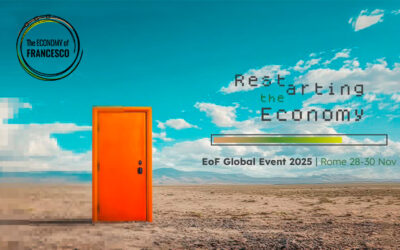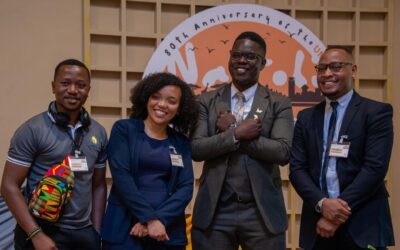Founder of L’Arche, Jean Vanier, true apostle of “the least”, has died. The Focolare joins in remembering him with immense gratitude. We recall him together with Chiara and other founders of movements and new communities in St Peter’s Square for the historic meeting of Pentecost 1998. The date 30th May 1998 resounds in many hearts as “the meeting of Pentecost”. On that occasion, Pope John Paul II called all the ecclesial movements and new communities together in St Peter’s Square for the first time ever.  Four of the founders were invited to speak in front of the Pope: Chiara Lubich, Kiko Arguello, Don Luigi Giussani, and Jean Vanier, founder of the L’Arche community, who left us on 7 May, at 90 years of age. His great work at the service of people with disabilities and those often considered the “least” in society, began in 1964 and led to the creation of over 150 centres around the world. The Focolare also enjoyed his wonderful capacity for friendship, and appreciates the strong support he gave through his faithful presence at all “Together for Europe” (link) events. Jean Vanier’s words to Pope John Paul II in St Peter’s Square conveyed his passion for the evangelical goal of unity. “Welcoming people with disabilities from different Christian traditions, welcoming Muslims, Jews and Hindus too, we have discovered how much the poor can unite us. Men and women belonging to different churches and different religions have helped us discover the mystery of our common humanity. We discover how, if we welcome a poor person, they lead us to the God of love, they lead us to Jesus”. In November 2013, at Montmartre in France, Jean Vanier addressed a meeting of friends of “Together for Europe”. The main theme of the event was the contribution Christian communities and movements can offer to eliminate poverty and marginalization in Europe. Jean Vanier began by quoting the Gospel: “Jesus said, ‘The Kingdom of God is like a marriage feast’ where everyone was too busy to attend. So the king sent his servants into the byways to seek out the lame and the helpless. And this is what I’ve tried to live all my life”. He dedicated himself particularly to those with intellectual disabilities, whom he defined as “the most oppressed people”. “They have changed me,” he declared, “I have seen that the Kingdom of God is theirs”. We express our condolences to his spiritual family throughout the world, and think of the great welcome that surely awaited him in heaven from the host of “the least” he had welcomed into his home and heart while on this earth.
Four of the founders were invited to speak in front of the Pope: Chiara Lubich, Kiko Arguello, Don Luigi Giussani, and Jean Vanier, founder of the L’Arche community, who left us on 7 May, at 90 years of age. His great work at the service of people with disabilities and those often considered the “least” in society, began in 1964 and led to the creation of over 150 centres around the world. The Focolare also enjoyed his wonderful capacity for friendship, and appreciates the strong support he gave through his faithful presence at all “Together for Europe” (link) events. Jean Vanier’s words to Pope John Paul II in St Peter’s Square conveyed his passion for the evangelical goal of unity. “Welcoming people with disabilities from different Christian traditions, welcoming Muslims, Jews and Hindus too, we have discovered how much the poor can unite us. Men and women belonging to different churches and different religions have helped us discover the mystery of our common humanity. We discover how, if we welcome a poor person, they lead us to the God of love, they lead us to Jesus”. In November 2013, at Montmartre in France, Jean Vanier addressed a meeting of friends of “Together for Europe”. The main theme of the event was the contribution Christian communities and movements can offer to eliminate poverty and marginalization in Europe. Jean Vanier began by quoting the Gospel: “Jesus said, ‘The Kingdom of God is like a marriage feast’ where everyone was too busy to attend. So the king sent his servants into the byways to seek out the lame and the helpless. And this is what I’ve tried to live all my life”. He dedicated himself particularly to those with intellectual disabilities, whom he defined as “the most oppressed people”. “They have changed me,” he declared, “I have seen that the Kingdom of God is theirs”. We express our condolences to his spiritual family throughout the world, and think of the great welcome that surely awaited him in heaven from the host of “the least” he had welcomed into his home and heart while on this earth.
Stefania Tanesini




0 Comments